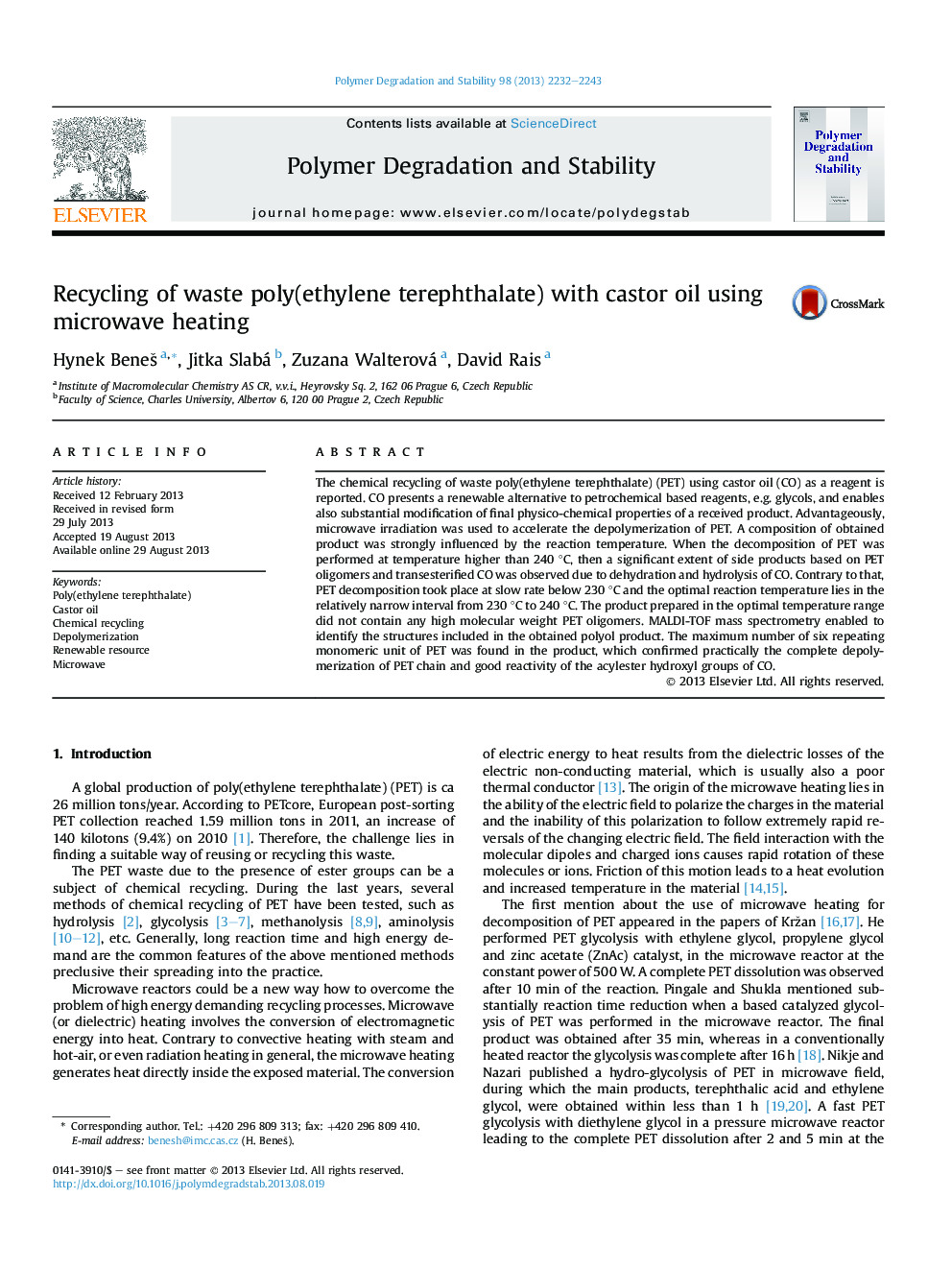| Article ID | Journal | Published Year | Pages | File Type |
|---|---|---|---|---|
| 5202264 | Polymer Degradation and Stability | 2013 | 12 Pages |
Abstract
The chemical recycling of waste poly(ethylene terephthalate) (PET) using castor oil (CO) as a reagent is reported. CO presents a renewable alternative to petrochemical based reagents, e.g. glycols, and enables also substantial modification of final physico-chemical properties of a received product. Advantageously, microwave irradiation was used to accelerate the depolymerization of PET. A composition of obtained product was strongly influenced by the reaction temperature. When the decomposition of PET was performed at temperature higher than 240 °C, then a significant extent of side products based on PET oligomers and transesterified CO was observed due to dehydration and hydrolysis of CO. Contrary to that, PET decomposition took place at slow rate below 230 °C and the optimal reaction temperature lies in the relatively narrow interval from 230 °C to 240 °C. The product prepared in the optimal temperature range did not contain any high molecular weight PET oligomers. MALDI-TOF mass spectrometry enabled to identify the structures included in the obtained polyol product. The maximum number of six repeating monomeric unit of PET was found in the product, which confirmed practically the complete depolymerization of PET chain and good reactivity of the acylester hydroxyl groups of CO.
Keywords
Related Topics
Physical Sciences and Engineering
Chemistry
Organic Chemistry
Authors
Hynek BeneÅ¡, Jitka Slabá, Zuzana Walterová, David Rais,
